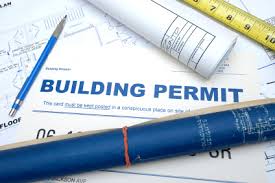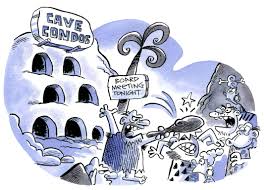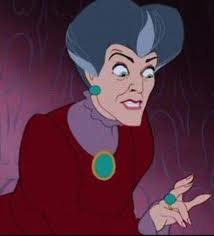 Even Halloween gives rise to legal issues that may pertain to our blog readers. This blog post will address haunted houses, zombie houses, ghosts and other scary situations from a legal perspective.
Even Halloween gives rise to legal issues that may pertain to our blog readers. This blog post will address haunted houses, zombie houses, ghosts and other scary situations from a legal perspective.
Unfortunately, a crime, suicide or other unpleasant event may have happened in a house prior to sale. Such a house may be considered to be “haunted”. Does New York law require disclosure that the house is haunted to a potential buyer? The answer is no. New York is a caveat emptor state, meaning “let the buyer beware”. Psychological issues do not require disclosure. It is the buyer’s responsibility to conduct inspections, ask questions and develop her own opinion about the neighborhood, school district and conditions in the house. Once the buyer has accepted delivery of the Deed at the closing, she has no claim against the seller for property conditions except those that specifically survive the closing according to the contract between the parties.
The only exception to this concept is New York’s Property Disclosure Law . This requires the seller to complete an extensive list of questions detailing property condition, such as has there ever been an oil tank at the property, is the electrical system original and the like. If a seller does not provide the completed Property Disclosure form, a $500.00 credit is to be provided to the buyer at closing. Interestingly enough, in upstate New York, most sellers complete the Property Disclosure form, while in downstate counties typically served by our firm, most sellers opt to credit the buyer at closing rather than complete said form.




 Quite often,
Quite often,  Often in a residential real estate transaction, unpermitted improvements to a house are present. The seller may find that purchasers are unwilling to enter a transaction with these conditions. The buyer may not want the responsibility for obtaining permits for work done by others.
Often in a residential real estate transaction, unpermitted improvements to a house are present. The seller may find that purchasers are unwilling to enter a transaction with these conditions. The buyer may not want the responsibility for obtaining permits for work done by others. 
 Attorneys provide valuable legal services on behalf of cooperative and condominium boards. Some buildings with fewer than ten units and without disputes have managed without an attorney representing the board. Other buildings may continue with the attorney who originally represented the sponsor. The purpose of this blog post is to describe the services that can be provided by an attorney representing a cooperative or condominium board.
Attorneys provide valuable legal services on behalf of cooperative and condominium boards. Some buildings with fewer than ten units and without disputes have managed without an attorney representing the board. Other buildings may continue with the attorney who originally represented the sponsor. The purpose of this blog post is to describe the services that can be provided by an attorney representing a cooperative or condominium board. People are leading increasingly complicated lives, in that they spend their time in several locales, some of which may not be their place of residence. If a person is fortunate, they may develop an affection for a particular area and buy a second home in such area. Likewise, they may inherit a beloved family home in a location where they do not live. When such a person passes away, the disposition of all of their property, no matter where located, must be addressed. The question to be explored in this blog post is which Court has jurisdiction over which property.
People are leading increasingly complicated lives, in that they spend their time in several locales, some of which may not be their place of residence. If a person is fortunate, they may develop an affection for a particular area and buy a second home in such area. Likewise, they may inherit a beloved family home in a location where they do not live. When such a person passes away, the disposition of all of their property, no matter where located, must be addressed. The question to be explored in this blog post is which Court has jurisdiction over which property.  Our readers may be familiar with a cooperative apartment building located in Manhattan by the name of River House. This building is known not only for its distinctive classic architecture and regal location, but also by its stringent admissions standards for purchasers. It has been well known throughout the New York real estate community that the River House has declined the purchase applications of numerous famous people and persons with seemingly substantial assets. This culture has resulted in apartments being listed for sale for years, because potential purchasers cannot get approved by the board. Overly rigorous standards hurt all residents, as apartments will not sell as readily.
Our readers may be familiar with a cooperative apartment building located in Manhattan by the name of River House. This building is known not only for its distinctive classic architecture and regal location, but also by its stringent admissions standards for purchasers. It has been well known throughout the New York real estate community that the River House has declined the purchase applications of numerous famous people and persons with seemingly substantial assets. This culture has resulted in apartments being listed for sale for years, because potential purchasers cannot get approved by the board. Overly rigorous standards hurt all residents, as apartments will not sell as readily.  Evil stepmothers are not only found in popular culture, as epitomized in Cinderella
Evil stepmothers are not only found in popular culture, as epitomized in Cinderella  . Such persons are commonly the subject of events reported by the New York press.
. Such persons are commonly the subject of events reported by the New York press.  Recently in the news is the rather
Recently in the news is the rather